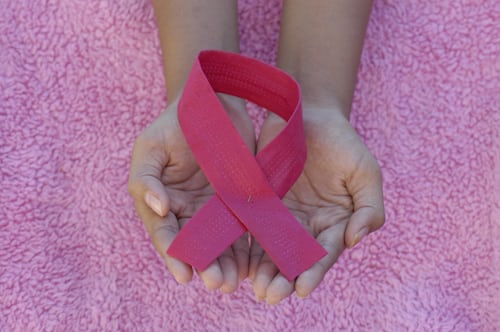Every October, Breast Cancer Awareness Month promotes ways to support those affected by the disease and brings attention to the women diagnosed. 685 000 people worldwide died in 2020 due to breast cancer, which affected 2.3 million women. Notably, the most common cancer in the world as of the end of 2020 was breast cancer, which had been diagnosed in 7.8 million women in the previous five years.
If a family member, a friend, or someone you know has been diagnosed, you may wonder how you can help them. We understand how easy it is to feel helpless, so we want to make the process a little easier by providing a few practical tips on assisting a loved one battling cancer.
Tips for Supporting Someone with Breast Cancer
According to research, cancer survivors benefit from a robust support system during their recovery, which keeps them motivated and strong. Cancer survivors with active emotional bonds reported better adaptability to the disease's changes and a higher overall quality of life.
Outlined below are tips to support a person going through breast cancer:
Have conversations and listen
Another critical aspect of helping a loved one with breast cancer is communicating and listening carefully. Establish yourself as a reliable source to whom they can turn when experiencing positive or negative emotions. You can make them feel less lonely in their journey by letting them know they can confide in you. Also, don't feel obligated to find the perfect way to discuss their illness. Maintain a normal conversation, be respectful, and listen.
Plan Visits
Cancer can be incredibly isolating. Spend time with your friend; you might be what they need to feel like they did before cancer took over their life.
- Always call ahead of time. Please be understanding if your friend cannot see you at that time.
- Make short, frequent visits instead of long, infrequent ones. Understand that your friend may not want to talk, but they may also not want to be alone.
- Plan a visit that allows you to provide physical and emotional support to the caregiver. You can stay with your friend while the caregiver leaves the house for a few hours.
- Try to avoid weekends and holidays, when many people will be there. A housebound patient may perceive time as the same. A lonely Tuesday morning can be just as depressing as a lonely Saturday night.
- Carry a crossword puzzle, needlework, or book to entertain your friend while they sleep or watch TV.
- Play their favorite music, and watch their favorite movie or TV show with them.
Help with finances
When women begin treatment, their costs frequently rise. They must manage hospital parking, gasoline, away-from-home lodging, and childcare costs. If the family's budget is already tight, this can add to their stress. Women with breast cancer frequently must take time away from paid work because they are ill, tired, or must travel for treatment. You can assist by offering financial assistance where possible. This can make them feel financially relieved in some way.
Offer Gifts
Look for small, practical items that your friend may require or enjoy. Consider their typical day and what could make it a little better. It's always good to laugh and smile, so look for amusing things to do with your friend. Make sure that gifts are immediately helpful. Small, frequent gifts are usually preferable to large, one-time gifts.
Connect them with other breast cancer survivors
It is beneficial and encouraging to form a support group during this time. Inquire whether your loved one prefers email or phone calls for communication.
Help out with chores
Helping a loved one with breast cancer with everyday tasks is another great way to help them, but don't assume they can't do certain things. Begin by asking if they require assistance, and then ask specific questions to learn where they need assistance. Cooking meals, doing laundry, grocery shopping, or helping are just a few examples of how you can help a loved one feel less overwhelmed and focus on recovery.
Take them to appointments and stay with them
Getting to and from doctor's appointments and treatments can be challenging. Some cancer treatments are taxing on the body, making driving a challenge. At specialist appointments, there is also much information to take in. You can assist her by being supportive and listening to the report if you're there as a support person. You could also give them taxi vouchers to help them get to and from treatment.
Stay connected
Piyush
If you can't visit frequently, prioritize other modes of communication, such as calling, texting, or emailing. When you know someone with cancer, regular check-ins improve their mental health and well-being. When they contact you, do your best to respond as soon as possible. And pay close attention to any requests or questions they may have. When you finish a call or text, tell them you're looking forward to your following conversation.
Bottomline
It's upsetting to learn that a loved one has breast cancer. It's critical to remember that your friend requires your assistance, and what that entails will differ from person to person. It's best to try to figure out where your friend is and respond appropriately.
You can accomplish this by listening, empathizing, and inquiring. Significantly, continue checking in if your loved one declines your offer to talk or help gently.
Also, it's okay if you say the wrong thing. Allow yourself grace and apologize. You're only human, after all. Then, inquire as to how you can better assist your friend. If you're having trouble, don't hesitate to ask for help.







